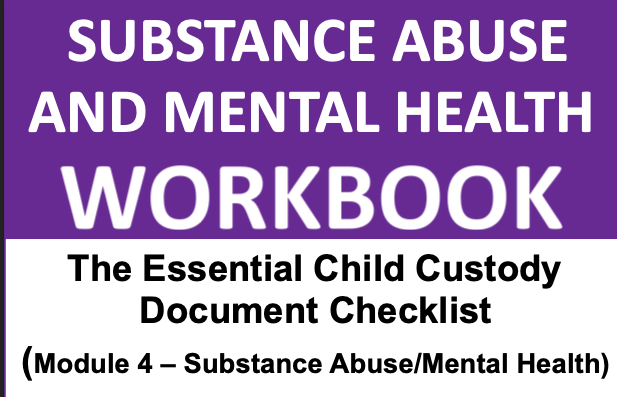Critical Balance Between and Child Safety
When a parent requests drug testing in a custody case, courts face a delicate balancing act. They must weigh the accused parent’s privacy rights against the paramount concern for child welfare. Understanding how courts evaluate the credibility of evidence presented in a drug testing motion can help both parents and attorneys navigate this complex legal terrain.
Family courts don’t order drug testing on mere suspicion alone. Instead, judges carefully scrutinize the credibility of evidence to determine if testing is warranted. This process involves evaluating multiple factors that together create a compelling basis for the court to intervene.
Key Take Aways
- Courts require evidence that demonstrates a reasonable connection between alleged substance abuse and potential harm to the child
- Witness credibility plays a crucial role, with firsthand observations carrying more weight than hearsay
- Documentation and physical evidence must be properly authenticated and have an intact chain of custody
- Courts look for patterns of behavior rather than isolated incidents when evaluating drug use allegations
- The best interests of the child ultimately outweigh privacy concerns when credible evidence suggests potential harm
What Makes Evidence Credible in Drug Testing Motions?
When evaluating the credibility of evidence presented in a drug testing motion, family courts apply specific standards to ensure fairness while protecting children. This assessment involves multiple dimensions, from the quality of witness testimony to the authenticity of physical evidence.
Relevance: The Foundation of Credible Evidence
For evidence to be considered credible in a drug testing motion, it must first be relevant to the case at hand. Courts look for a clear connection between the alleged substance abuse and its potential impact on parenting abilities or child safety.
For instance, evidence showing a parent driving under the influence with children in the vehicle carries significant weight. Similarly, documentation of frequent intoxication during parenting time directly relates to child welfare. On the other hand, allegations about occasional recreational drug use during non-parenting time may be deemed less relevant.
Furthermore, courts assess whether the evidence demonstrates a reasonable basis for believing drug use might impair parenting abilities. This includes evaluating if the alleged substance abuse could affect judgment, create unsafe environments, or lead to neglect of basic childcare responsibilities.
Witness Testimony: A Matter of Credibility
Courts carefully assess witness testimony when evaluating the credibility of evidence presented in a drug testing motion. Not all witnesses are considered equally reliable. Several factors influence how much weight a court gives to testimony:
- Relationship to the parties: Courts consider potential bias based on the witness’s relationship with either parent
- Firsthand versus secondhand knowledge: Direct observations carry more weight than hearsay
- Consistency of statements: Accounts that remain consistent over time appear more credible
- Corroborating evidence: Testimony supported by other evidence strengthens credibility
- Prior criminal history: A witness’s prior convictions, especially for crimes involving dishonesty, may diminish credibility
Professional witnesses often receive greater deference. For example, testimony from social workers, police officers, teachers, or healthcare providers typically carries more weight than family members or friends who might have personal biases.
Additionally, witnesses who can provide specific details rather than vague allegations tend to be more convincing. A witness who can describe exactly what they saw, when they saw it, and the circumstances surrounding their observations presents more credible testimony than one offering general concerns without specifics.
Documentation and Physical Evidence: Authenticity Matters
Physical evidence often provides the most compelling support for drug testing motions. However, courts evaluate this evidence carefully for authenticity and proper handling. Key considerations include:
- Chain of custody: Has the evidence been continuously secured to prevent tampering?
- Authentication: Can the evidence be verified as genuine?
- Relevance: Does the evidence directly relate to current parenting concerns?
- Context: Is there legitimate explanation for the evidence?
For example, a dated photograph showing drug paraphernalia in a home might be questioned if there’s no clear indication of when it was taken or who it belongs to. Conversely, recent text messages explicitly discussing drug use that can be authenticated through phone records provide stronger evidence.
Medical records can also serve as powerful documentation. Hospital reports showing treatment for overdoses, positive drug screenings from healthcare providers, or prescription histories showing medication abuse patterns all constitute credible evidence when properly obtained and authenticated.
Furthermore, courts consider whether evidence has been legally obtained. Evidence gathered through illegal means, such as unauthorized access to private accounts or unlawful recording, may be deemed inadmissible regardless of its content.

Expert Opinions: Professional Perspectives
Expert testimony significantly strengthens drug testing motions. When evaluating the credibility of evidence presented in a drug testing motion, courts give substantial weight to qualified professionals who can interpret behaviors, physical evidence, and potential impacts on children.
These experts might include:
- Substance abuse counselors who can identify signs of addiction
- Psychologists who evaluate how substance use affects parenting capacity
- Medical professionals who can explain physical symptoms and their causes
- Toxicologists who interpret drug test results and patterns of use
Courts evaluate expert credibility based on qualifications, methodology, and objectivity. Experts who follow established protocols, base opinions on multiple sources of information, and acknowledge limitations in their assessments generally present more credible testimony.
Additionally, experts who can explain how specific substances impact parenting abilities provide particularly valuable insights. For instance, a substance abuse specialist might testify about how stimulant use can lead to erratic behavior, poor decision-making, and potential neglect during crashes—all directly relevant to child welfare concerns.
Pattern of Behavior: Beyond Isolated Incidents
When evaluating the credibility of evidence presented in a drug testing motion, courts look beyond isolated incidents to identify concerning patterns. A single allegation of drug use rarely justifies mandatory testing. Instead, courts seek evidence of ongoing issues that could impact parenting.
Patterns might emerge through:
- Multiple police reports documenting substance-related incidents
- A series of concerning text messages or social media posts over time
- Repeated observations by different witnesses
- Progressive deterioration in parenting abilities or child care
- Consistent behavioral indicators such as missed visits, erratic behavior, or financial problems
For example, a parent who has multiple DUI arrests, failed to complete court-ordered substance abuse treatment, and continues to display signs of intoxication during exchanges presents a pattern that courts find more compelling than a single isolated report.
Additionally, courts consider the recency and frequency of alleged drug use. Evidence of current, ongoing substance abuse generates more concern than historical use that occurred years earlier with no recent indications of relapse.
Procedural Safeguards: Ensuring Fair Evaluation
Courts maintain rigorous procedural safeguards when assessing evidence in drug testing motions. These protections ensure that evidence receives appropriate scrutiny before potentially invasive testing is ordered.
Key procedural considerations include:
- Notice and opportunity to respond: The accused parent must have adequate time to review allegations and prepare a defense
- Rules of evidence: Standards regarding relevance, reliability, and admissibility must be met
- Cross-examination: Opportunity to question witnesses about their claims
- Burden of proof: The moving party bears responsibility for providing credible evidence
Furthermore, courts consider less invasive alternatives before ordering drug testing. If concerns can be addressed through supervised visitation, temporary monitoring, or voluntary compliance with treatment programs, courts may prefer these approaches initially.
These safeguards help ensure that testing is ordered only when genuinely warranted by credible evidence, rather than as a fishing expedition based on weak allegations or personal vendettas between parents.
Balancing Privacy Rights and Child Welfare
Perhaps the most critical aspect of evaluating evidence credibility involves balancing competing interests. Courts recognize that drug testing represents a significant invasion of privacy, yet child protection remains paramount.
When evaluating the credibility of evidence presented in a drug testing motion, courts weigh several factors:
- The strength and reliability of evidence suggesting substance abuse
- The nexus between alleged drug use and potential harm to the child
- The age and specific vulnerabilities of the children involved
- The availability of less intrusive alternatives
- Constitutional and statutory privacy protections
For example, vague allegations about occasional marijuana use might not overcome privacy concerns, especially in jurisdictions with legalized recreational cannabis. However, credible evidence of methamphetamine production in a home with young children would likely justify immediate intervention despite privacy considerations.
Courts consistently prioritize child welfare when credible evidence suggests genuine risk. As one court eloquently stated, “A parent’s right to privacy ends where a child’s safety begins.”
Final Thoughts: The Evidentiary Threshold
Understanding how courts evaluate the credibility of evidence presented in a drug testing motion helps all parties approach these sensitive matters appropriately. For parents seeking testing, gathering substantial, relevant, and authenticated evidence is essential. For those defending against testing motions, recognizing the standards courts apply provides guidance for challenging insufficient evidence.
Ultimately, courts aim to protect children while respecting parental rights. Drug testing is ordered not as punishment but as a tool to ensure children remain safe and parents receive appropriate support when needed. By maintaining high standards for evidence credibility, courts strike this critical balance.
When concerns about a co-parent’s substance use arise, consulting with an experienced family law attorney who understands these evidentiary standards can make a significant difference in presenting a compelling case for testing or effectively challenging unsubstantiated claims.
Related Resource
Understanding how courts evaluate evidence is just one part of navigating custody cases involving substance abuse concerns. What happens when a parent refuses court-ordered testing altogether?
For insights into this critical aspect of family court proceedings, we recommend reading our companion article, “Consequences of a Parent’s Refusal of Drug Testing in Custody Cases”.
This resource explores the legal ramifications, how courts interpret refusals, and strategies for addressing this challenging situation in your custody case.
Get Our Essential Child Custody Documents Checklist
Proper documentation is critical to building a credible case in custody cases involving substance abuse concerns. We’ve created a comprehensive resource to help you gather and organize the essential evidence needed for drug testing motions.
Download our “Essential Child Custody Document Checklist: Substance Abuse & Mental Health Module” that includes:
- Detailed checklists for evaluation and treatment records
- Guidelines for collecting alcohol/drug testing results
- Templates for organizing substance abuse counseling documents
- Forms for documenting police reports and criminal records
- Worksheets for psychological evaluations and therapy records
- Communication logs for substance abuse and mental health issues
- Photo and video documentation guidelines
This valuable resource will help ensure you’re thoroughly prepared with properly organized evidence that meets court standards. Developed by certified divorce and child custody specialist Esther C. Moore, this checklist has helped countless parents present compelling evidence in family court.
[SIGN UP NOW FOR THE CHILD CUSTODY DOCUMENT COURSE →]
Don’t leave your case’s outcome to chance. Get organized, be prepared, and present credible evidence that protects your child’s best interests.
FAQ's
Can a judge order drug testing based solely on one parent's testimony?
What types of evidence are most compelling in drug testing motions?
Can evidence of past drug use justify current testing? Can evidence of past drug use justify current testing?
How does a parent defend against false allegations seeking drug testing?
Can social media posts be used as evidence in drug testing motions?

About Esther
Esther C. Moore is a family law attorney with over 27 years of experience, including high-conflict child custody and divorce cases. As the CEO of All Rise Solutions, LLC, Esther provides coaching, online courses, and resources to help individuals navigate the legal system when dealing with complex family law matters, including mediation in high-conflict divorce. With a deep understanding of how narcissistic dynamics impact custody and divorce proceedings, Esther is committed to empowering individuals with the knowledge and tools they need to protect their rights.







